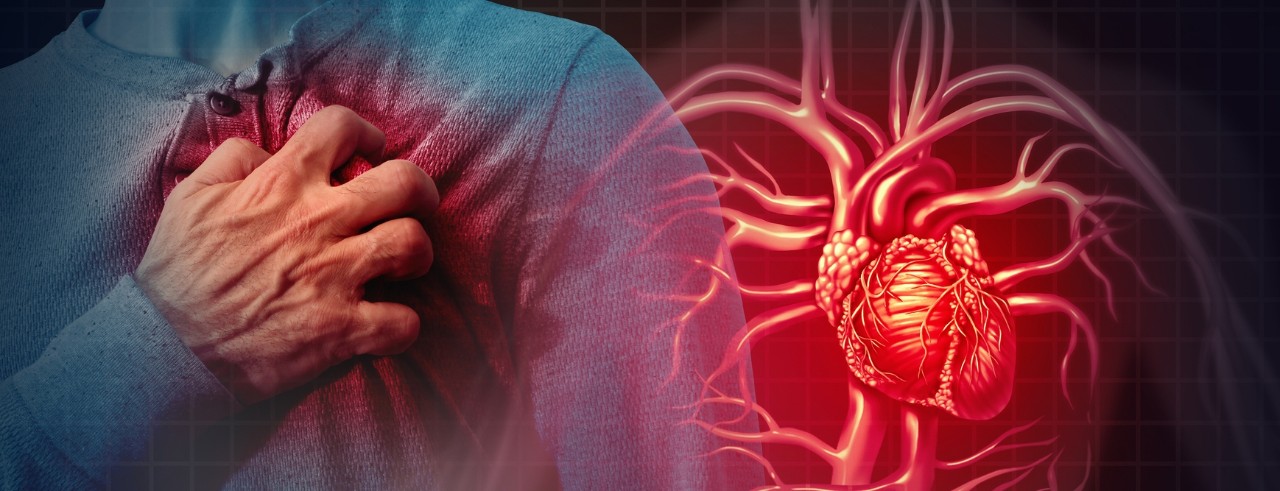
Predicting the likelihood that someone has heart disease
UC capstone project evaluates cost, time and accuracy of diagnostic methods
Is it possible to know which tests have the most “bang for the buck” in determining if a patient has heart disease?
Motivated by global statistics and heart disease in her own family, one University of Cincinnati student chose her capstone project to research the topic.
Delores Mincarelli, who earned a Master of Science in business analytics from UC in 2022, used progressive logistic modeling to predict the likelihood a person has heart disease, given results of diagnostic tests.
Why it matters

Delores Mincarellli
According to the Centers for Disease Control and Prevention (CDC), the leading cause of death worldwide is heart disease. In the United States alone, heart disease accounts for more than 650,000 fatalities annually.
Making the right treatment decisions for patients depends on a clinical test-based diagnosis of heart disease. Not all patients with chest pains undergo clinical testing. One of the challenges facing the medical sector is developing more precise methods for predicting cardiovascular disease and more affordable testing early on to improve survival rates.
“As health care costs continue to rise, I believe it is prudent to compare costs of diagnostic tests with the incremental model improvement they offer to assess feasibility,” Mincarelli said.
I credit my capstone mentors at UC. They encouraged me to pursue this proof of concept. I value the education I received at UC and the solid foundation in predictive modeling.
Delores Mincarelli UC Master of Science in business analytics
Evaluating cost, time and accuracy
Mincarelli's model used a combination of traditional risk factors in addition to diagnostic test results to predict the probability of heart disease. Because the cost of diagnostic tests can be steep, she grouped variables into four groups ranging from low to high cost. These groups were added to the model progressively to see the impact of cost and accuracy.
The two highest cost variables also take the most time to administer.
- Thallium: These are variables of radioactive imaging tracers injected into the veins that measure blood flow and oxygenation to the heart
- Fluoroscopy: This is imaging that uses several pulses of X-ray beams to show internal organs in real-time on a screen. Standard X-rays are like photographs, whereas fluoroscopy is like a video
Conclusions
According to Mincarelli’s analysis, the highest cost variables did improve model accuracy. However, they also expose patients to radioactive substances and X-rays. The capstone project concluded with an alternative testing solution to consider, Magnetocardiography (MCG).
Compared to the commonly used diagnostic tests mentioned above, MCG is a non-invasive and safe test, utilizing extremely sensitive devices to measure magnetic fields produced by electrical currents in the heart. It can identify people with coronary artery heart disease in a few minutes with high accuracy.
Mincarelli believes her capstone was instrumental in her being offered an internship with a startup company in clinical trials utilizing the MCG technology.
“I credit my capstone mentors at UC. They encouraged me to pursue this proof of concept. I value the education I received at UC and the solid foundation in predictive modeling,” Mincarelli said.
Impact Lives Here
The University of Cincinnati is leading public urban universities into a new era of innovation and impact. Our faculty, staff and students are saving lives, changing outcomes and bending the future in our city's direction. Next Lives Here.
Related Stories
UC professor wins national Entrepreneurship Educator award
February 12, 2024
To celebrate excellence and dedication to entrepreneurship education, the United States Association for Small Business and Entrepreneurship (USASBE) awarded its prestigious Entrepreneurship Educator of the Year Award to University of Cincinnati professor Charles H. Matthews, PhD.
UC Center for Business Analytics provides skills training for individuals, employers
June 27, 2023
For more than a decade, the University of Cincinnati's Carl H. Lindner College of Business has proactively taken steps toward bridging the skills gap in today's rapidly evolving professional landscape. Through a comprehensive program training for business, the Center for Business Analytics is leveraging its extensive expertise to provide tailored education and development opportunities to individuals and businesses alike.
Fifth Third partners with UC Analytics to launch high impact data bootcamp
January 25, 2023
Corporate partner at the 1819 Innovation Hub, Fifth Third Bank, recognizes that employees are at the heart of the digital revolution. It takes more than just assembling a star-studded dream squad to succeed in business. It involves upskilling, training and transforming current personnel into superstars.
